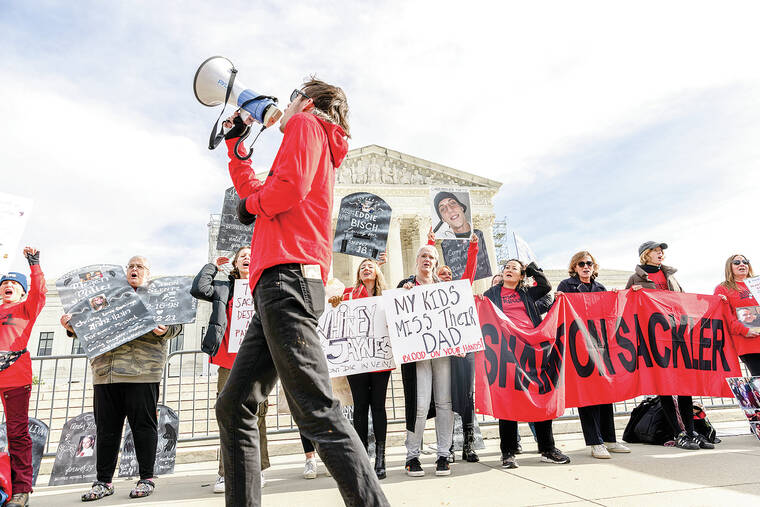Supreme Court jeopardizes opioid deal, rejecting protections for Sacklers
WASHINGTON — The Supreme Court said Thursday that members of the Sackler family cannot be shielded from liability for civil claims related to the opioid epidemic, jeopardizing a bankruptcy plan that would have offered such protection in exchange for channeling billions of dollars toward addressing the crisis.
In a 5-4 decision, the justices found that the deal, carefully negotiated over years with states, tribes, local governments and individuals, had broken a basic tenet of bankruptcy law by shielding members of the Sackler family from lawsuits without the consent of those who might sue.
ADVERTISING
The plan for Purdue Pharma, the maker of the prescription painkiller OxyContin, the drug widely considered to have ignited the crisis, was unusual because it offered broad protections that the Sackler family, who controlled the company, had demanded for years even as the Sacklers avoided declaring bankruptcy themselves.
“The Sacklers have not filed for bankruptcy and have not placed virtually all their assets on the table for distribution to creditors, yet they seek what essentially amounts to a discharge,” Justice Neil Gorsuch wrote, joined by Justices Clarence Thomas, Samuel Alito, Amy Coney Barrett and Ketanji Brown Jackson.
While he acknowledged that the decision left the plan in limbo, Gorsuch wrote that the threat of future lawsuits from opioid victims, states, government entities and others might compel the Sacklers “to negotiate consensual releases on terms more favorable to opioid victims.”
In a strongly worded dissent, Justice Brett Kavanaugh, joined by Chief Justice John Roberts and Justices Sonia Sotomayor and Elena Kagan, warned of the consequences for the tens of thousands of families seeking compensation. The “decision is wrong on the law and devastating for more than 100,000 opioid victims and their families,” he wrote.
The majority homed in on the method the Sacklers used to insulate themselves from opioid-related lawsuits, finding that a third party could not use the bankruptcy system to shield themselves from litigation, binding others without their consent.
Although Purdue Pharma filed for bankruptcy protection after a wave of opioid-related lawsuits, the Sacklers did not. Instead, they asked the court overseeing Purdue’s bankruptcy for “an order extinguishing vast numbers of existing and potential claims against them.”
A watchdog office in the Justice Department, had challenged the mechanism used by the Sacklers, a liability shield.
© 2024 The New York Times Company





